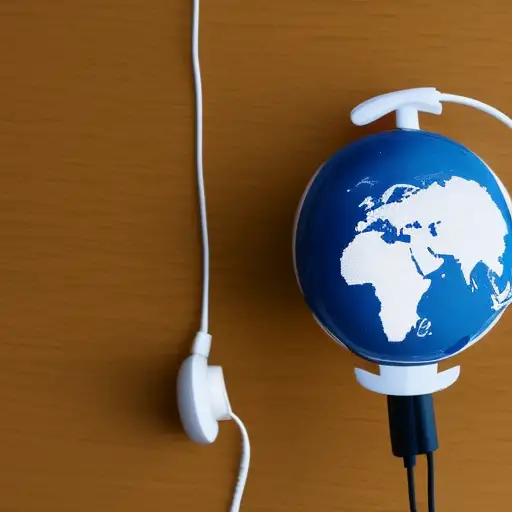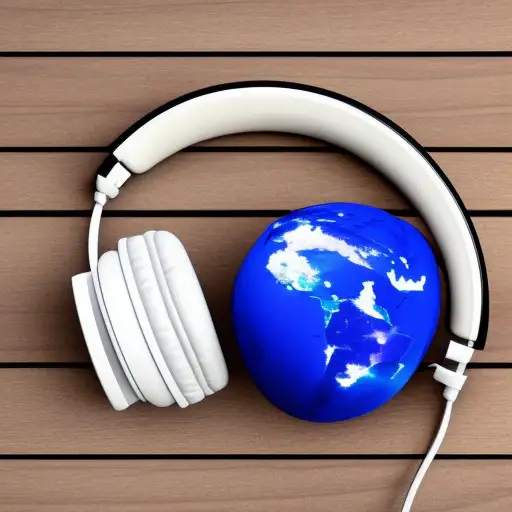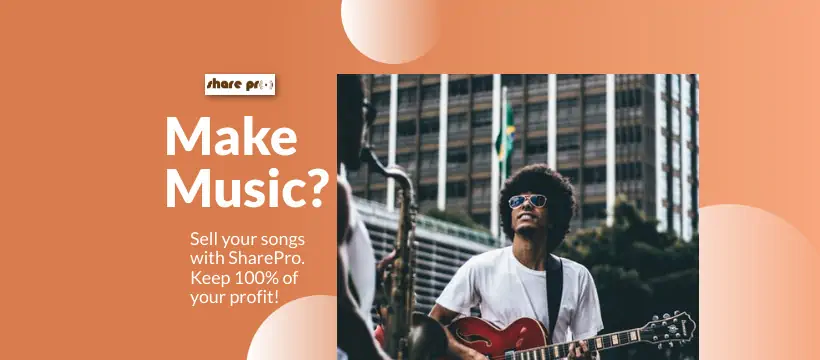How To Make It In Music Living Outside The USA
If you live outside the USA there's many ways for you to be successful in music.
Today's world is highly well-connected thanks to the ease of social media. This means that indie artists around the globe can all have a chance at tapping into the music industry - and you know what? The music industry wants to tap into audiences around the world too!
Local artists can be fantastic ambassadors for the global music industry and the ultimate entry point for major labels and industry players.
Successful Music Careers Outside of USA
We'll go through how to get record deals, sync placements in your own country, and connect to your local music industry personnel and the general international ecosystem.
We'll give an in-depth general overview rather than a region-specific breakdown so that indie artists around the globe can apply these insights to their own region!
Know your home market
As a native, local indie artist, you first want to be on good terms with your home market.
If you live in an area that doesn't have a venue to perform live at, you have 2 options:
1) Either play in the nearest city or town
2) or… do it yourself.
Be the local promoter. If no one nearby listens to the type of music you play, invite people who do and target the press via email PR campaigns to let them know what events are happening. Put up posters, and grow a community via social media.
Build your community via live shows. Let them know that you plan on releasing songs, and if you've fostered your community right, they'll want to stay in the loop and hear your music when it's out.
Expand
After building your home fan base, conquer neighboring towns and cities. If someone in the press always publishes news about your concerts, go ahead and ask them for any recommended venues or promoters from their region.
They may even put you in contact with these venues themselves,
You want to then keep repeating this as you expand through different territories.
Why?
Because record labels, or anyone in the industry, is also looking for opportunities to reach audiences - they have to work at it too! They are competing with other record labels to grab the attention of the press, radio, record stores, film, and TV supervisors, or anyone who has access to mass audiences.
They will want you on their team if you can help the industry out.

Your reach as an international indie artist is now worldwide thanks to advances in technology. It's time to tap into this global music market.
Identifying teams
So, you've grown a small fan base from your surrounding region and would now like to find a record deal.
If you've figured that signing to a record label is your main priority, then record labels can definitely work remotely with you no matter where you are in the world.
Now, choose your target. You should choose a label that you want to be associated with and whose brand you relate to.
Usually, artists find other artists they love and then look up which label they're signed to. Of course, that doesn't necessarily mean that the label will be based in your country or even the same continent, but if it does, that's great!
This is the beauty of today's globalized world.
You can live on a remote island in the Mediterranean but release ambient techno singles on the biggest electronic music record label in London. The record label will only care if the music is selling and matches its brand.
Suppose it's a label that cares about press reviews and physical sales of CDs or vinyl. In that case, they might also be looking out for extra-musical qualities, such as social media presence, fan base, and concert popularity.
Indie artists should also check if the label only releases singles or usually sticks with artists for multiple album releases.
To get your music onto TV or film, you need to identify the best matching team.
Look up artists that you like and whose music is similar to yours before checking out which publishers represent them or which sync agencies get consistent placements and work with a range of signed and unsigned artists. You can also find the supervisor of a series or film from the credits to learn more about the type of music they choose.
The Pitch
Before you pitch, you want to make sure you understand why you're contacting a company and want to ensure that what you're requesting is practically possible.
You can only reach out to a label, publisher, or music supervisor and ask them to release your music if you have songs to release!
So, prepare the songs you want to release, organize your social media accounts and digital Artist Pages, and prepare your audiences to gear up for your next release.
Do you already do your own music videos or lyrics videos? Clean up all your socials, show that you consistently post across social media, and build up your Artist Pages across DSPs; Spotify lets you pin your Spotify Playlists - go for it! It's easy content. Bonus: it can also help warm up the algorithm.
You even set up these preparations before your first release!
If you're pitching for an album, then prepare very advanced demos or final mixes of your album via a non-expiring link - not WeTransfer.
Say 1-2 short sentences about your marketing plans for the album and what YOU will do to support the label in releasing the album - that could mean that you plan on booking a series of album release concerts.
Keep the follow-ups to one or two across a couple of days. Then, if you receive radio silence, don't be let down - you can still search for more labels, publishers, and industry people to partner with to meet your goals of spreading your music worldwide.

No matter where you are in the world you can make a living with your music without getting signed to a USA record label.
Find your tribe
Making it big in the music industry outside the USA means finding the right team members who have access to support your efforts.
If you live in a small market - you want to try as much as possible to get all audience members from your niche genre to be on board with your music before entering the next biggest market.
That means liaising with local bands, press, agents, and promoters to get on board. Simultaneously, you want to make it as easy as possible for them to help you. For instance, by letting you perform as a support act, spreading the word, booking venues, and targeting audiences from new markets to convert them to fans when they get to know you more.
Showcase!
Say you're from Germany, and your indie songs fall into the alternative pop ballad genre, and you find that they really suit the Scandinavian alternative pop ballad music scenes.
Check your analytics on social media, Spotify, and Shazam to see if you're right and if your audiences are wildly leaning towards coming from Scandinavian countries.
You know what? Then Scandinavia sounds like a great starting point for your next market!
Aim to build your fan base there through speaking with local embassies and raising funds to tour there, agents to book shows, local filmmakers to license your music, and applying to showcases to perform in front of local industry personnel.
Showcases and conferences are great ways to meet people in the industry.
You can even contact them directly through the showcase and arrange a quick meeting to share your music with them before following up with them after the showcase conference.
International Indie Artists Can Be Successful
As long as you have internet access and a way to record your music, indie songwriters and artists worldwide can make it in the music industry - even if they live outside the US. Identify which companies you'd like to partner with, research what they need, and pitch accordingly.
Blog Article Tags
international indie artists labels how-to global sales marketing promotion deal musicMore Articles
Where To Find Good Indie Music - If you're a long time fan or first time listener of Indie music, we'll show you the best methods for discovering the music you love.
Here Are 7 of the Best Vocal Booths on a Budget - Take a look at 7 vocal booths to get you close to that quality recording.
10 Must-Visit Music Resources for Indie Artists - Take a look at several useful resources that can help further your music career.
Why The Indie Music Industry Is Taking Over Mainstream Music - The indie music scene has been growing and why we believe it won't stop here.
5 Tips for Booking a Recording Studio at a Good Price - If you're looking to book studio time at a good price, check out these solid tips.



